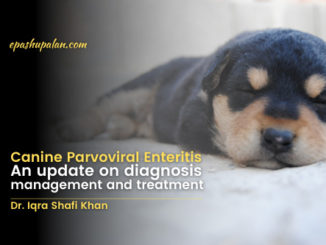With little notice, it can become apparent that a dog is suffering from an upset stomach. Knowing natural remedies for your dog’s gastrointestinal issues can quickly save you from a very large and unnecessary vet bill!
Many pet owners don’t realize that a few of the most accessible and natural treatments are also the most inexpensive and effective around. As humans, we can mix up a cup of herbal tea to help ease our painful guts. However, our canine friends must resort to eating the green blades of grass found in the yard—making for a cold and chewy serving of canine herbal tea.
This behavior and remedy is just about as natural as it gets, but if you’re looking for more than backyard grass remedies, read on! Before we dig in, be sure to read the article “People Foods That Can Kill Your Dog” so that you know which foods are safe to share with your dog and which may send them to the vet (or worse!).

Does Eating Grass Naturally Relieve GI Upset in Dogs?
Often times, when a dog has stomach issues, he or she will chomp on fresh, chlorophyll-rich grass. This doesn’t necessarily mean your dog is sick, however, as healthy dogs exhibit this behavior, too.
Should I Let My Dog Eat Grass?
Grass may cause a dog to vomit—which may be just what your canine needs to make things right again. Some dogs like to add greens to their diet just like you or I would enjoy a crisp salad. Others utilize grass as an effective means for gastrointestinal relief. If your dog does take to eating grass, however, you will want to keep an eye out for the dangers and warning signs below.
1. Stray Fecal Matter Mixed in With the Yard Grass
Stray fecal matter mixed into the grass can transmit parasites and disease if your dog eats it, so a clean yard is best.
2. Pesticide Residue
Pesticide residue can make your dog very sick and can even kill them. For this reason, you should only use “pet-friendly” or “pet safe” yard supplies. (Check every label for this distinction.)
Important Note: Most snail bait can result in a death sentence for dogs that consume it. Look for “pet safe” brands. Snail bait regularly attracts animals because it has a very tempting scent.
3. Excess Vomit Following Consumption of Grass
Excess vomiting following grass-eating is a sure indicator that your dog is sick. The grass gets swallowed in long strands because the dog won’t chew it completely when feeling ill. The long grass stimulates the stomach, causing him or her to experience involuntary vomiting. When this occurs, a trip to the vet can ease your dog’s ailment and your mind.
4. Habitual Grass-Eating
Habitual grass-eating may be a sign that your dog is lacking in needed nutrients. To make sure your dog is getting a balanced diet—whether it’s strict kibble intake, wet intake, or a combination of both—look for labeling that boasts of complete nutrition for dogs.
A pretty good indicator that a dog food is of good quality is when it offers real meat products (not meat by-products) as the first ingredient. (This is not a guarantee, so look for the “100% complete nutrition for dogs” stamp!)
4 Holistic Treatments for Upset Stomach in Dogs
As long as you use common sense and have a genuine concern for your pet’s well-being, you can count on a long, fulfilling life with your canine friend. Keep in mind that no matter what you do to help your sick dog—using herbs, bland food, or fasting—be sure to check in with your veterinarian. Even natural or herbal treatments can cause drug interactions in dogs taking prescription medications. Your vet will know how to guide you in such situations.
1. The 24-Hour Fast
Our dogs gain real excitement when it comes to dinner time. Food, to a dog, consist of just about anything that fits in his or her mouth. Because of this, a dog with an upset stomach may not seem all that rare. After all, moldy trash to a canine is a real treat. Providing no blood is found in the vomit or stool, the drama of a queasy-feeling dog can usually be resolved with a 24-hour fast.
Note: This fasting time does have rules attached, which should be followed to keep your dog hydrated and safe.
Fasting Guidelines
- Puppies cannot be fasted and require a visit to the vet if sick.
- Adult dogs can manage a full 24-hour fast if they have no other health issues.
- Younger dogs must receive small meals of easily digestible bland foods during the 24-hour period.
- Supply plenty of fresh water; even though a sick dog may not want to drink, you must encourage liquid consumption.
- Should the dog refuse to drink (sometimes drinking water makes the stomach feel worse), ice cubes or ice chips may be offered. Chicken or beef broth (unsalted and unseasoned) and unflavored Pedialyte may also be offered.
- Following the 24-hour fasting period; reintroduce small, easily digestible bland meals to your dog three or four times a day for the first day or two. (Boiled rice and bland chicken work well.)
If blood is found in your dog’s vomit or stool, a visit to the vet is mandatory in all cases.

2. The Boiled Rice and Chicken Diet
This is a really simple yet effective treatment for dogs with gastrointestinal issues. Simply boil boneless, skinless chicken and then white rice as you normally would. If you aren’t sure how, follow the recipe below.
How to Prepare Chicken for Dogs
Use boneless, skinless chicken (chicken skin adds fat that your dog may not be able to handle right now; never give chicken bones to dogs).
Instructions
- Add the chicken to boiling water (do not add seasoning!).
- Boil the chicken until completely cooked (170°F internal temperature); juices must run clear and show no sign of blood.
- Allow it to cool completely.
- Cut the chicken into small, bite-sized cubes.
- Add a small amount of chicken to a small amount of prepared white rice and feed to your dog according to his or her age and size.
How to Prepare White Rice for Dogs
If you boil the chicken first, you can use the bland, unseasoned broth for cooking the rice. This will enhance your dog’s appetite.
Ingredients
- 1 cup unprepared white rice
- 2 cups of water (or bland broth)
Instructions
- Bring the water to a boil in a saucepan.
- Add the uncooked rice.
- Return it to a slow boil.
- Cover and reduce the heat to low.
- Simmer for 20 minutes (or until the water has been absorbed).
- Fluff the rice and allow it to cool completely. Serve it with cubed, boiled chicken.
Tips for Feeding
The age and size of your dog will determine the amount of chicken and rice to feed. Remember: You are feeding really small portions no matter what size or age your dog may be. Your vet is the best source for determining your dog’s specific meal-size requirements.

3. Will Ginger Help My Dog’s Upset Stomach?
If you don’t already know, ginger is well-known not only for its wonderful spicy flavor, but for its use as a medicinal aid for stomach discomfort. We, humans, stir it into dishes and steep it into herbaceous teas, not just for the flavor, but as a natural remedy for an upset stomach. If your dog is suffering from GI upset, you can use it in small amounts to relieve gastric upset.
4. Will Goldenseal Help My Dog’s Upset Stomach?
Goldenseal is used as a topical antibiotic for treating dogs that suffer from eye infections or those that have weepy eyes. When it is made into a tea for these applications, save a sip or two to resolve gastric upset in your dog. Goldenseal is helpful for reducing bowel problems as well!
Can Dogs Take Pepto-Bismol? Ask Your Veterinarian!
The consensus is that Pepto-Bismol (bismuth subsalicylate or “the pink stuff”) can be fatal to cats—the aspirin now included in the compound has major negative health effects on cats.
But is it okay for dogs? Not really. Unless a vet prescribes it with a complete dosage schedule and is monitoring your dog regularly, avoid such OTC drugs and those found in the medicine cabinet. This is particularly true if your dog is afflicted with any of the following conditions:
Never give Pepto-Bismol to a dog with the following conditions:
- Aspirin sensitivity
- A history of gastrointestinal ulcers
- Bleeding disorders of any kind
- The combined use of steroids or non-steroidal medications (has caused fatal bleeding episodes in dogs)
Better Safe Than Sorry
When your pet is suffering from GI upset (or anything for that matter), it is always best practice to take your dog to the veterinarian—always! Many modern vets can provide you with a holistic treatment plan should you request one.
Natural Remedies for Dogs in Homeopathic Dilutions
|
Natural Remedy
|
Condition
|
|---|---|
|
Chamomilla (Chamomile)
|
Helps dissipate pain especially in the mouth. Works well on teething puppies.
|
|
Cocculus (Indian cockle)
|
Great for dogs that get motion sickness when traveling. Also helps with exhaustion and sleeplessness.
|
|
Drosera (Round-leaf sundew)
|
Often a first choice for dealing with spasmodic kennel cough considered violent hacking, like something is caught in the dog’s throat.
|
|
Euphrasia (Eyebright)
|
A tonic for the eyes. Eye irritations that burn and sting. Possibly used for conjunctivitis.
|
|
Mercurius Solubilis (Mercury, quicksilver)
|
Conditions with acrid discharge like infected anal glands. Can also help to resolve gingivitis and bouts of diarrhea with mucus.
|
|
Pulsatilla (Windflower)
|
Helpful for clingy or sensitive dogs, especially those that suffer separation anxiety. Commonly used in false pregnancy.
|
|
Silicea (Silica, pure flint)
|
Regenerates dead tissue and knit bones and tendons. Cleanses the body of congestion, infection, and mucus. Also helps to heal scar tissue.
|
|
Thuja occidentalis (Arbor vitae)
|
Antibacterial properties. Sometimes used to combat side effects of over-vaccination.
|
Homeopathic Remedies for Dogs Are Great When Used Responsibly
While a chronic condition certainly requires a veterinarian or trained homeopath, there are a few common acute conditions you can resolve using natural substances at home.
Never use homeopathic treatment in place of consulting a vet. Remedies listed in the chart are basic everyday treatments that are used for acute conditions like mild GI upset or bee stings in dogs that have no history of anaphylaxis. Anything more serious than these minor ailments requires professional care.






Be the first to comment